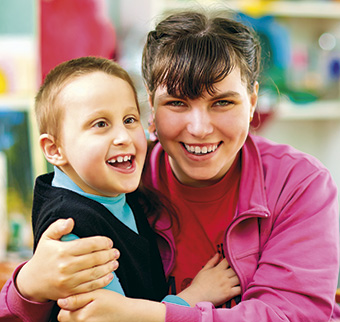Project SMILE Ireland: the next step
All dental services should aim for a quality experience, for everyone, explains Dublin-based special care dentist Kev Mac Giolla Phadraig
Three years ago, five dentists met to consider ways in which we could improve dental services for Irish people with disabilities. From this first step, Project SMILE Ireland emerged, eventually including almost 100 contributors from a broad range of backgrounds.
The project used a research framework to identify goals for dental services for people with disabilities in Ireland. Much like the recently published “A Vision for Improved Oral Health in Ireland”, the project gave voice to the suggestions of a broad group on how future dental services should be shaped in Ireland.
Similarly, the project produced goals for dental services, in this case specifically for people with disabilities, which can guide us all in planning and providing a world-class service. The project has published a set of priorities for dental services, as agreed by dentists, patients and advocates in Ireland. The panel (next page) lists the top ten priorities to emerge from this project.
What is most obvious to me when I look at these priorities is that there are many ways in which everyone involved in dentistry in Ireland can get involved in improving the experience of dentistry for people with disabilities. Some goals are very difficult to achieve and require a policy response if they are to be achieved.
For instance, one Consensus Statement states that our services should be designed using defined care pathways. What this means is that the patient should be able to access a choice of public or private dentist at primary care level, either within general or specifically designed services, supported by appropriate structures and processes to ensure seamless care.
Examples of appropriate structures include regional specialist referral centres or general anaesthetic services and examples of appropriate processes include effective preventive programmes, referral pathways or payment systems.
Other goals are much easier to implement and can be applied across practices who wish to easily increase their disability-friendliness. As an example, the top item states that your service should raise awareness of oral health among people with disabilities, their families, carers and non-dental health professionals. Thinking creatively, this goal can be achieved with little effort in every practice in the country.
Examples include dental nurses developing information sheets for carers and family of older dependent adults, or practice managers promoting the services provided to fearful patients online, or clinicians using correspondence with physicians as an opportunity to highlight the importance of adequate oral hygiene in preventing infective endocarditis. More fundamentally, if we, as clinicians, convey respect for our patients with disabilities in every patient encounter, the message may get through: we expect better experiences, better health and better outcomes for our patients.
I hope that the project’s results will provide food for thought for all who want to make things a little better. From those tasked with designing evidence based service models of dental care, to practitioners who see the opportunity to expand their niche within Special Care Dentistry, such as domiciliary care providers or sedationists, the goals listed by the project gives us a selection of ways in which we can make changes, big and small, to how people with disabilities experience dentistry.
At its essence, the message from Project SMILE Ireland is simple: all our services should aim for a quality experience – for everyone. Dental services in Ireland should be appropriate not only to the needs but also the expectations of people with disabilities. To achieve this, we must first see each patient as an individual, regardless of disability.
Let’s try to deliver a dental service to all citizens that meets their individual needs in a way that we would like to receive care ourselves.
Find out more
For full details of the Delphi Panel recommendations, see our recent publication online in the journal PLOSone at http://bit.ly/smileireland
You can also keep up to date with new research the Project is involved in at www.projectsmileireland.com and on Facebook.com/ProjectSmileIreland
About the author
Kev Mac Giolla Phadraig is the joint lead researcher on Project SMILE Ireland alongside Professor June Nunn. Kev is an Ussher lecturer in public dental health (disability studies) at Trinity College Dublin. He also has private practice limited to special care dentistry in Dublin. Further information about Kev can be found at www.specialcaredentist.ie This study was the work of almost 50 experts across Ireland, who gave their time to answering the question: What should dental services for people with disabilities in Ireland be like?
Top priorities for dental services for people with disabilities in Ireland
Oral health services should raise awareness of oral health among people with disabilities, their families, carers and non-dental, health professionals
- Oral health services should enable optimal outcomes for people with disabilities that meet individual need
- Oral health services should be structured to enable the targeting of specific groups and deliver care based on individual need
- Oral health services should be available and accessible
- Oral health services should be designed using defined care pathways
- Oral health services should be acceptable to people with disabilities
- Disability-related training should be available to dental healthcare professionals and students, appropriate to their need
- Oral health training should be available for people, their families, carers and health professionals
- Oral health services should be quality assured
- Oral health services should be structured to enable frequency of care, appropriate to individual need.

